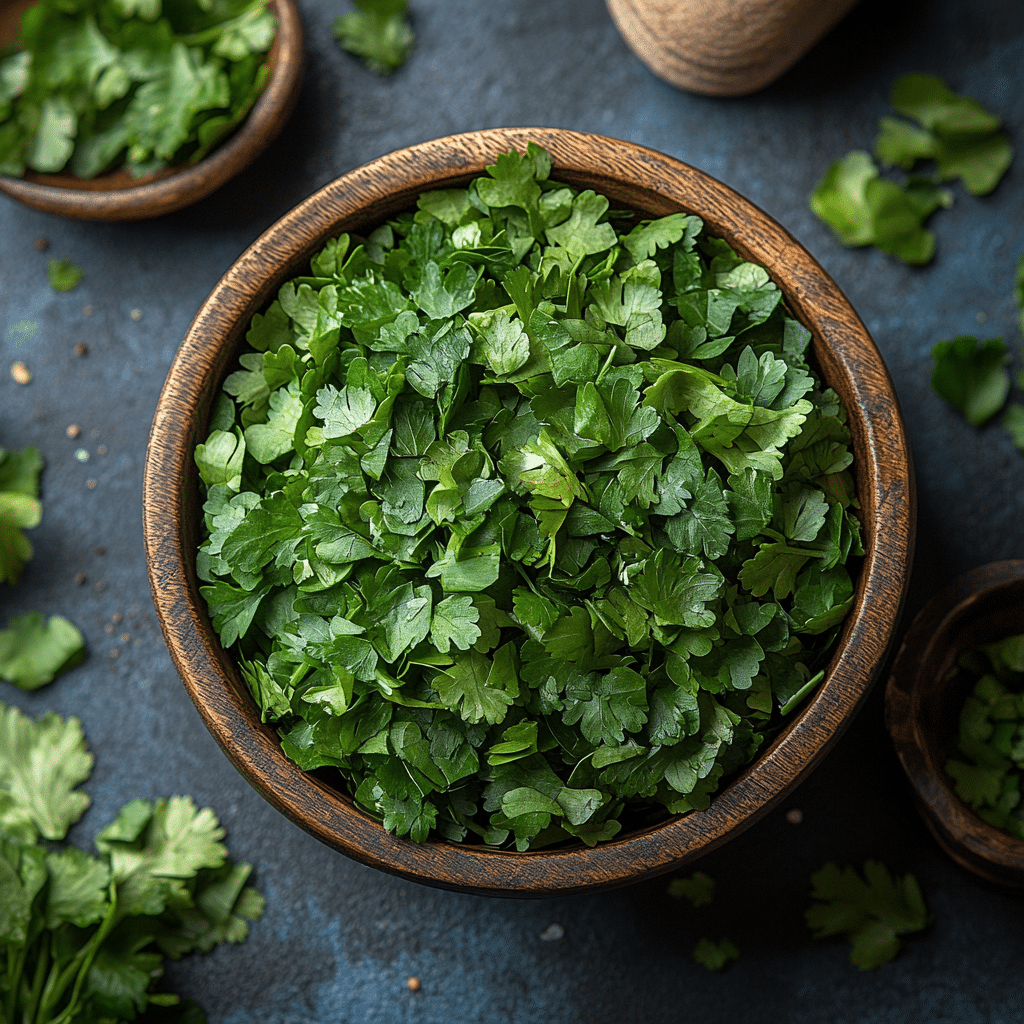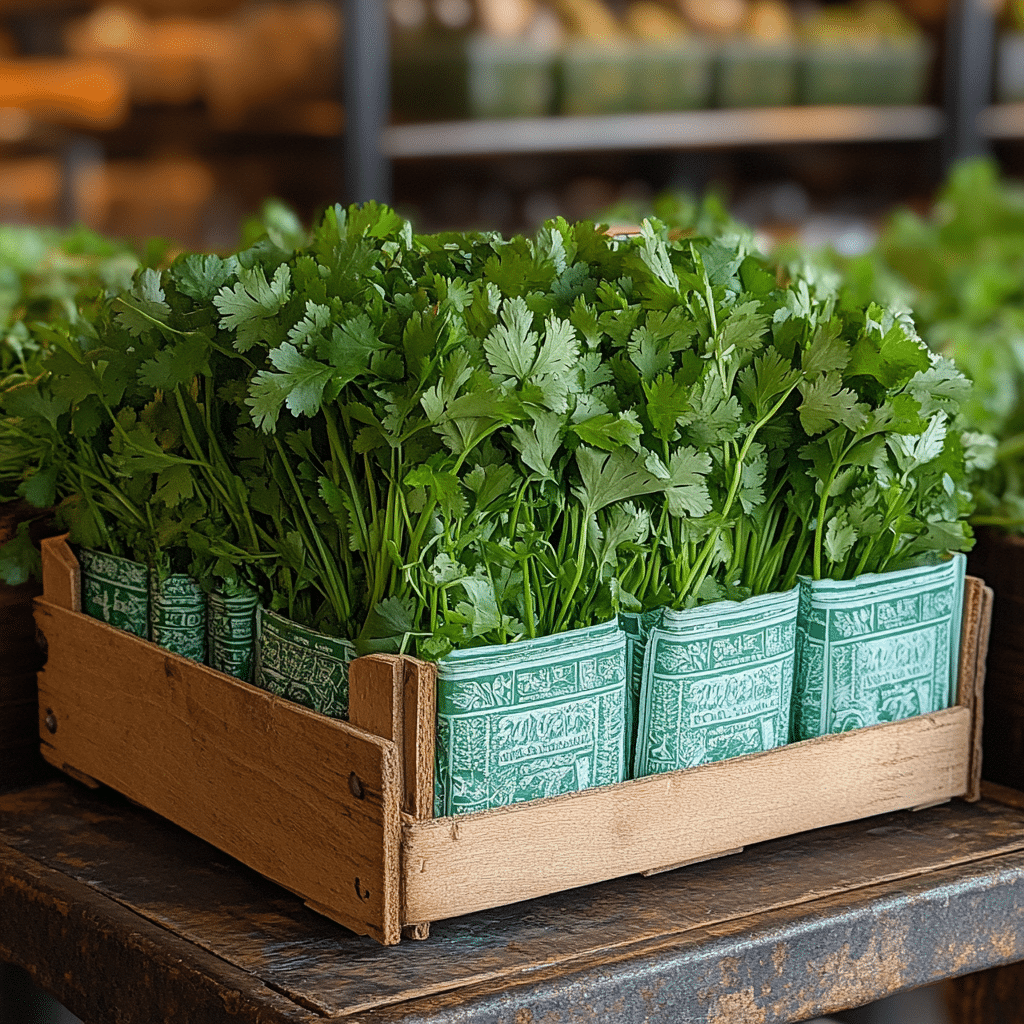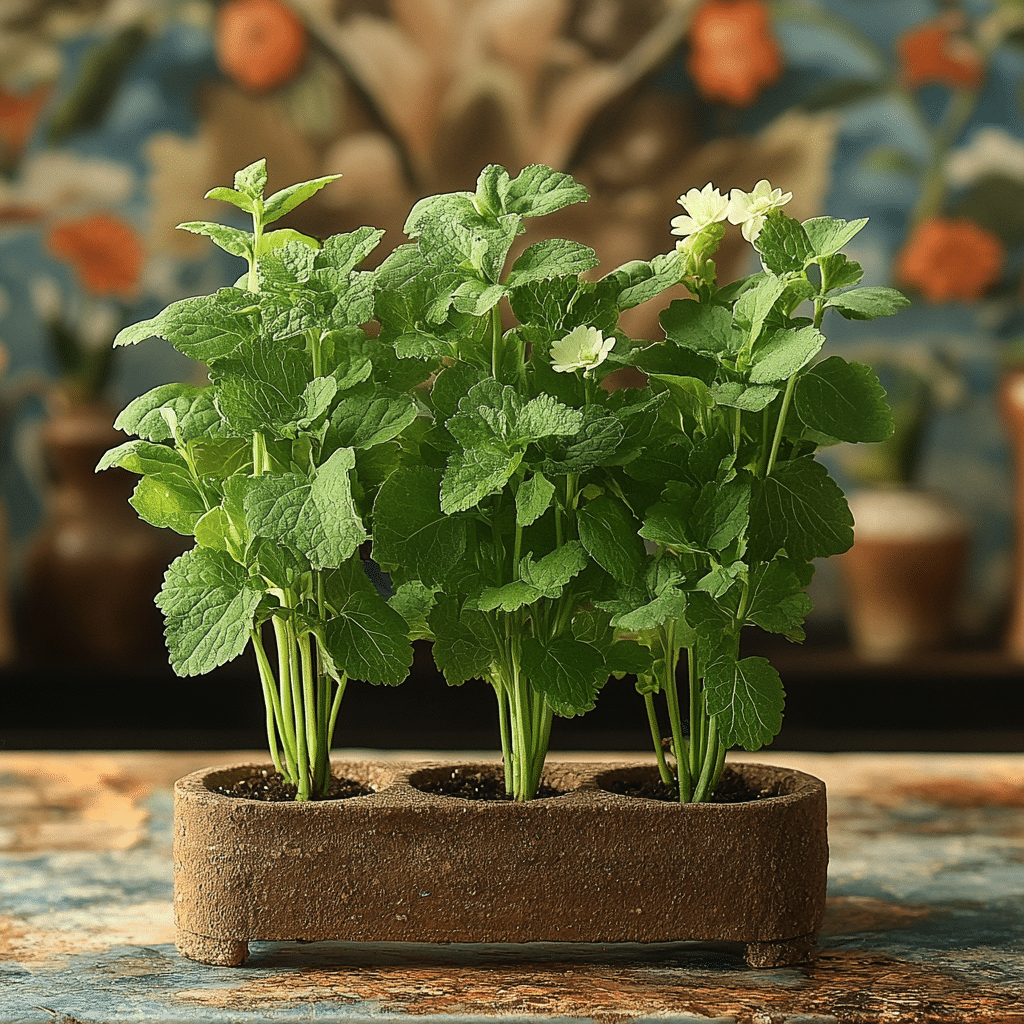Cilantro. Coriander. Dhania. Whatever you call it, this aromatic herb has been the subject of much debate. For some, it’s a fresh and citrusy essential that elevates dishes; for others, it’s no better than soap. Let’s delve into why dhania coriander holds such a polarizing position on the palate.
The Cultural Heritage of Dhania Coriander
Dhania coriander, or cilantro as it’s known in the Americas, boasts a rich saga of cultural relevance that traverses centuries and continents. In Indian cuisine, dhania is indispensable, adding sparkle to chutneys, curries, and biryanis. Here, the leaves and seeds of the coriander plant are staples, each bringing unique flavors and health benefits. Yet, this isn’t where its use stops. Globally, dhania graces dishes from spicy Mexican salsas to fragrant Middle Eastern tabbouleh. Try picturing a steaming bowl of pho or a fresh plate of ceviche without it—practically impossible!
Traditional Uses of Dhania Coriander consist of:
– Garnishing rice dishes, curries, and stews in Middle Eastern cuisine.
– Forming the basis of sauces and salads in Mediterranean and Latin American dishes.
– Being a staple in numerous Asian recipes, enhancing dishes’ taste and aroma.
The ubiquity of dhania coriander across various cultures underlines its versatile application in culinary arts, yet also hints at its divisive nature.

The Science Behind Dhania Coriander’s Divisive Taste
Intriguingly, the love-or-hate relationship many have with dhania coriander may actually be in our DNA. Research has shown that about 10-15% of the global population perceives a soapy taste when consuming coriander leaves. This aversion is due to aldehydes, compounds found in both coriander and soap. A 2012 study by genetic testing company 23andMe pinpointed a specific gene cluster, OR6A2, that makes some people particularly sensitive to these compounds.
Moreover, scientific insights revealed:
– Aldehydes: These are present in soap and coriander, explaining the soapy aftertaste.
– Gene Cluster OR6A2: This gene is linked to heightened sensitivity to coriander’s flavor.
– Cultural Influence: People in regions where coriander is commonly used might develop a tolerance or even an affinity, despite genetic predisposition.
This means, for some, no matter how hard they try, the herbal note of dhania coriander will never quite hit the spot. It’s the cilantro-saga that keeps chefs and food enthusiasts intrigued and somewhat divided.
| Aspect | Details |
| Common Names | Dhania, Coriander, Cilantro, Chinese Parsley |
| Botanical Name | Coriandrum sativum |
| Usage Categories | Culinary, Medicinal |
| Common Culinary Uses | – Topping for rice dishes, curries, soups, stews – Ingredient in sauces, salads, seafood dishes, Mexican salsa – Ground into powder for curries, stews, marinades, spice blends |
| Flavor Profile | Fresh leaves: Citrus, strong aroma Seeds: Warm, spicy, nutty, citrusy, earthy, mellow, touch sweet |
| Regional Cuisines | Asian, Oriental, Middle Eastern, European, Latin, Indian |
| Health Benefits | – Antioxidant-rich – May help lower blood sugar – Fights infections – Promotes heart, brain, skin, and digestive health |
| Medicinal Properties | Contains Citronellol (antiseptic), borneol, and linalool (aid digestion and prevent diarrhea) |
| Popular Forms | Fresh leaves (Cilantro) Dried seeds (Coriander seeds) Ground powder (Coriander powder) |
| Divisive Opinions | Loved for its fresh citrus taste and aroma Disliked for its soapy taste and pungent smell |
| Price (per lb approx.) | Fresh leaves: $1.50 – $2.50 Seeds: $2.00 – $3.50 Powder: $2.50 – $4.00 |
| Other Uses | – Used in herbal medicines – Speed up mouth ulcer healing, prevents bad breaths |
| Notable Features | Mild and versatile spice that enhances the flavor of dishes, rather than masking |
Health Benefits: Nutritional Powerhouse or Overrated?
Despite its polarizing flavor, few can contest the myriad health benefits packed within the tiny leaves of dhania coriander. Rich in dietary fiber, vitamins C and K, and loaded with antioxidants, this herb is more than just a flavor enhancer; it’s a nutritional dynamo.
Studies underscore several wellness perks:
– Improved Digestion: Coriander’s fibers and essential oils aid in smooth digestion.
– Anti-inflammatory Properties: The antioxidants present help reduce inflammation.
– Lower Blood Sugar Levels: Research by the University of Glasgow suggested that coriander extract reduced blood pressure in hypertensive rats.
– Antimicrobial Traits: Make coriander a natural preservative, extending the shelf life of perishables.
These advantages, combined with its antimicrobial properties, make dhania coriander a fascinating herb both in culinary and medicinal circles. So, even for those who find its taste unpalatable, it might be worth re-evaluating its culinary applications purely for its health benefits.

Public Figures and Chefs Weigh In on Dhania Coriander
When it comes to cooking, dhania coriander can make or break a dish—and opinions among chefs reflect this divide. Renowned British chef Jamie Oliver often champions coriander for its brightness and transformative power in his recipes. Conversely, American culinary star Ina Garten has been vocal about her distaste, famously substituting parsley for coriander.
Other notable personalities have weighed in, including:
– Gordon Ramsay: Acknowledges coriander’s potent flavor, advocating for its careful use.
– Sarah Chapman And Diddy: Stepped into the spotlight with differing dietary preferences but remain mum on the coriander debate.
– Devon Green: While not explicitly about coriander, his food philosophy embodies experimentation—which could turn coriander skeptics into fans.
Clearly, the debate isn’t just confined to home kitchens; even top-tier chefs have not reached a consensus on this herb.
Brands That Embrace or Shun Dhania Coriander
Several food brands have taken clear positions on dhania coriander, either embracing it or offering alternatives. Chipotle Mexican Grill proudly includes cilantro in their burrito bowls and salsas, thus delighting many fans. On the flip side, meal kit company Blue Apron frequently provides coriander-free recipes, understanding the divided opinions among consumers.
Brand Approaches to Coriander:
– Embrace: Chipotle, with cilantro-laden salsas and meals.
– Alternative Options: Blue Apron, catering to coriander-averse customers.
– Niche Markets: Specialized spice brands offering both coriander-included and omitted product lines for flexibility.
Such brand strategies highlight how deeply ingrained the coriander divide is, influencing even corporate decisions.
Recipes to Transform Your Relationship with Dhania Coriander
For those looking to mend their relationship with dhania coriander, innovative recipes might hold the key. For the lovers, a classic Indian coriander chutney made with mint and chillies offers a vibrant kick. Those less enamored by the fresh leaves might find enjoyment in the softer, earthy notes of toasted coriander seeds within a Moroccan tagine.
Intriguing Recipes Include:
1. Coriander Chutney: Fresh leaves blended with mint, spices, and green chillies—a burst of flavor.
2. Toasted Coriander Seeds: Enhancing a Moroccan tagine or a hearty meat rub devoid of the soapy notes.
3. Hyderabadi Biryani: Featuring coriander both as a garnish and within the spice mix.
Experimentation with these and other dishes can help even the staunchest coriander opponent find a version they can appreciate.
The Future of Dhania Coriander in Global Cuisines
As global culinary trends shift, the status of dhania coriander remains dynamic and multifaceted. Modern culinary endeavors are casting coriander in new lights, from cocktails and baked goods to avant-garde dishes using its textural contrasts. Innovative chefs are even exploring the possibilities in foams, gels, and desserts.
For instance, the devotion game of modern gastronomy ensures that coriander’s potential is continuously pushed to the forefront, irrespective of its divisive nature. As more people explore unique culinary applications and celebrate this age-old herb, dhania coriander will undoubtedly maintain its place on a diverse range of plates.
In conclusion, the saga of dhania coriander is a compelling reflection of cultural, genetic, and culinary dynamics. Whether you identify as a fervent fan or a hesitant critic, this herb’s journey through history and kitchens worldwide is nothing short of fascinating. So, the next time you debate its place in a dish, remember, you’re contributing to a conversation that’s centuries old and deliciously complex.
By embracing its varied roles in cuisines and health, perhaps we can bridge the gap, finding common ground on our plates.
Dhania Coriander: The Herb Dividing Taste Buds
Dhania coriander often evokes strong opinions, some swearing by it, others wanting it far from their plates. This versatile herb, used in cuisines worldwide, has a fascinating history and intriguing science behind it.
Culinary Chameleon or Culinary Nightmare?
Love it or hate it, dhania coriander’s culinary versatility is legendary. From salsas and chutneys to soups and curries, its flavor can morph remarkably, making it a staple in diverse cuisines. However, did you know that dhania coriander has a love-hate relationship entrenched in genetics? A genetic variant in some people causes the aldehydes in coriander to taste like soap, leading to its divisive reputation—a discovery as surprising as checking the score of the 49ers game during halftime.
Rich History and Cultural Significance
Coriander isn’t just a trendy garnish. Its use dates back to ancient civilizations, where it was both a spice and a medicinal herb. Six weeks ago today, archaeologists discovered ancient coriander seeds in Egyptian tombs, suggesting it was well-regarded even by pharaohs. Think about it—the same herb we sprinkle casually on our tacos was once a prized possession in a king’s tomb!
Modern-Day Influence
Today, dhania coriander continues to influence culinary and medicinal fields. Modern herbal medicine practitioners laud its digestive benefits and potential to combat food poisoning. Ironically, coriander’s modern use also coincides with other contemporary movements. For example, Mothers Against drug deaths highlight natural remedies, including herbs like coriander, in their advocacy for healthier living solutions.
So, whether you’re a coriander crusader or avoid it entirely, next time you encounter this herb, remember its rich history, genetic quirks, and its ongoing contributions to culinary and medicinal fields.

Are coriander and dhania the same thing?
Yep, coriander and dhania are the same thing, just different names. “Dhania” is commonly used in Indian cuisine, while “coriander” is used in other parts of the world.
What does dhania do in the body?
Dhania is a real multitasker in your body. It’s got Citronellol, which helps with mouth ulcers and bad breath. Plus, it’s rich in borneol and linalool, aiding digestion and even helping to prevent diarrhea.
What is the difference between coriander powder and dhania powder?
There’s no difference between coriander powder and dhania powder. They’re both made by grinding dried coriander seeds and have that warm, nutty, slightly citrusy flavor used widely in Indian cooking.
What do Americans call coriander?
Americans call the fresh leaves of the plant “cilantro,” while they use “coriander” for the seeds. It’s a bit of a name game depending on which part of the plant you’re talking about.
Why is cilantro not called coriander?
Cilantro isn’t called coriander in the U.S. because Americans reserve “coriander” for the seeds. It’s all about how different parts of the plant are named in different places.
Does cilantro lower blood pressure?
Cilantro may indeed help lower blood pressure. It’s got properties that might help with heart health by relaxing blood vessels and reducing the risk of hypertension.
Who should not eat coriander?
People with allergies to coriander or its relatives, pregnant women, and those taking certain medications should avoid eating coriander. It’s always a good idea to check with a healthcare provider.
Is it OK to eat coriander everyday?
Eating coriander every day is generally safe and might even give you some health benefits. It’s rich in antioxidants and can support heart, brain, skin, and digestive health.
Is coriander safe for kidneys?
Coriander is safe for your kidneys in normal dietary amounts. It might even help with detoxification. But, as always, moderation is key.
What happens if we drink dhaniya water daily?
Drinking dhaniya water daily might help with digestion, control blood sugar levels, and detoxify your body. It’s a simple way to get some extra health perks from this herb.
Is coriander good for skin?
Coriander is good for the skin due to its rich content of antioxidants and anti-inflammatory properties. It can help with various skin conditions and promote a clear, healthy complexion.
Are coriander seeds good for constipation?
Coriander seeds can indeed help with constipation. They promote healthy digestion due to their high fiber content, making bowel movements more regular.
What do Mexicans call coriander?
Mexicans call coriander “cilantro,” and it’s a staple in a lot of their traditional dishes like salsa and tacos, adding a fresh, zesty flavor.
What ethnicity uses coriander?
Coriander is used in a wide variety of ethnic cuisines, including Asian, Middle Eastern, Latin American, and European foods. It’s a versatile herb that enhances many dishes.
What do British call cucumbers?
The British call cucumbers “cucumbers,” just like in America. No fancy or different name for these green veggies in the UK.



